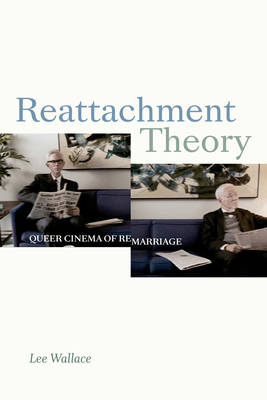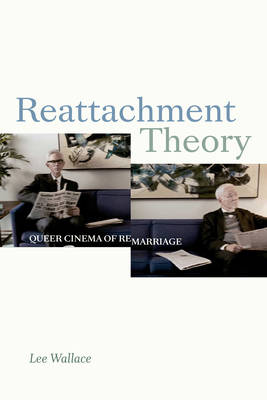
- Afhalen na 1 uur in een winkel met voorraad
- Gratis thuislevering in België vanaf € 30
- Ruim aanbod met 7 miljoen producten
- Afhalen na 1 uur in een winkel met voorraad
- Gratis thuislevering in België vanaf € 30
- Ruim aanbod met 7 miljoen producten
Zoeken
€ 53,45
+ 106 punten
Omschrijving
In Reattachment Theory Lee Wallace argues that homosexuality-far from being the threat to "traditional" marriage that same-sex marriage opponents have asserted-is so integral to its reimagining that all marriage is gay marriage. Drawing on the history of marriage, Stanley Cavell's analysis of Hollywood comedies of remarriage, and readings of recent gay and lesbian films, Wallace shows that queer experiments in domesticity have reshaped the affective and erotic horizons of heterosexual marriage and its defining principles: fidelity, exclusivity, and endurance. Wallace analyzes a series of films-Dorothy Arzner's Craig's Wife (1936); Tom Ford's A Single Man (2009); Lisa Cholodenko's High Art (1998), Laurel Canyon (2002), and The Kids Are All Right (2010); and Andrew Haigh's Weekend (2011) and 45 Years (2015)-that, she contends, do not simply reflect social and legal changes; they fundamentally alter our sense of what sexual attachment involves as both a social and a romantic form.
Specificaties
Betrokkenen
- Auteur(s):
- Uitgeverij:
Inhoud
- Aantal bladzijden:
- 264
- Taal:
- Engels
- Reeks:
Eigenschappen
- Productcode (EAN):
- 9781478008101
- Verschijningsdatum:
- 1/05/2020
- Uitvoering:
- Paperback
- Formaat:
- Trade paperback (VS)
- Afmetingen:
- 152 mm x 229 mm
- Gewicht:
- 390 g

Alleen bij Standaard Boekhandel
+ 106 punten op je klantenkaart van Standaard Boekhandel
Beoordelingen
We publiceren alleen reviews die voldoen aan de voorwaarden voor reviews. Bekijk onze voorwaarden voor reviews.







